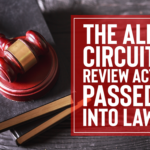When evaluating the merits of a potential case, we consider a variety of factors, some of which are described below. No single factor is decisive in our analysis and usually a combination of factors convinces us that a particular case has extraordinary merit. Please consider these factors when providing information about your potential case to us.
- Nature of the fraud. What kind of fraud is involved? How can the scheme be proven?
- Public interest aspects of the case. Does the case have special public interest aspects? How does it affect its victims? For instance, although any fraud against the government is reprehensible, a physician who performs unnecessary surgical procedures on unsuspecting patients to obtain reimbursement from Medicare raises the heinousness of the misconduct.
- Evidence. What evidence does the potential client have? Internal company documents? Email communications? Video tapes of meetings or recordings of conversations? The more detailed and specific the proof, the stronger the case will be.
- What actions have been taken to prevent the fraud? How has a potential client attempted to stop the fraud? Has the whistleblower complained to the company committing the fraud? Complained to federal agents? Participated in committing the fraud?
- Disclosure of the fraud. Has the fraud been disclosed publicly through the media or government reports? Has it been the subject of a legislative or administrative hearing? Is it likely that another whistleblower has already reported the fraud or filed suit? Technical considerations in the False Claims Act can mean the difference between a viable case and no case.
- Credibility of the potential client. Was the client in a position to know the full details of the defendant’s scheme? Is the potential client a credible, articulate individual?
- Value of the case. How much has the government been damaged by the wrongdoing? What kind of recovery might result from a case?
- Defendant’s finances. Is the defendant a well-heeled entity or nearly bankrupt? Can it satisfy any judgment obtained?
- Where suit can be filed. Some U.S. Attorney’s offices are more experienced and more aggressive in pursuing False Claims Act cases. Different courts have interpreted the False Claims Act in different ways. Determining which offices and which courts will be involved in a particular case are important considerations.
- Practical Considerations. Is the case too small or too unsubstantiated (and therefore too risky) to justify the commitment of our firm’s resources?



